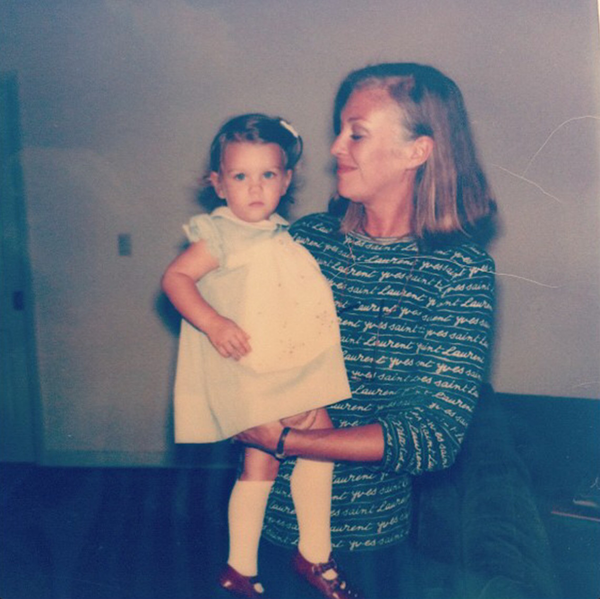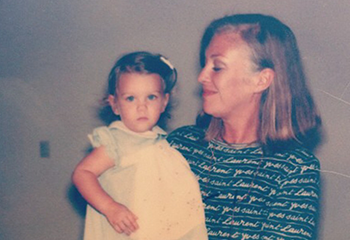How to release your fear of death

Death anxiety is more common than you might think. Most people have unconscious fears and questions around death. Yet most of us don't talk about it. But that wondering (even when unconscious) about what happens when we die has a profound impact on our thoughts, feelings, and behavior. The fear is often so great and so painful that we protect ourselves by repressing the full realization of death and dying.
In order to overcome that fear and to manage anxiety, we need to both face death and also reimagine it. There are many ways to begin to think about death in a positive way. I have found that personally facing death and my fears about it have eased my anxiety in significant ways. When I first began to work in the field of death and dying my anxiety increased as I was forced to stare head-on into the reality of it all, but then after a short time of really having to face it, I realized that I was growing more comfortable and that my fears were dissipating. I've since been able to find many beautiful ways to look at death, one of them being the comparison to birth.
Regardless of your religious or spiritual inclinations, what is like to think about if birth and death are really the same thing? What if birth is simply the death of something that came before? Just as babies are born from the world of the womb into the arms of a mother, maybe the same happens upon death. And maybe if we listen closely enough during this lifetime we’ll hear the heartbeat of something bigger than we think we know now. Fear of death is really just fear of what comes next. But what if that death is really just another birth?
Last fall I gave birth for the third time in my life, an experience so singular and primal that I can only ever liken it to deaths I've witnessed. As I labored that evening I thought about my father and my mother, I thought about friends I've lost, and I thought about patients I've seen through their final moments of life. It is not easy to leave this world, nor is it easy to come into it. I do believe there's an in-between place, because I've felt it in these brief moments of becoming a mother, and I've seen it in the people I've lost.
We are not these bodies. We are so much more. But we come in as these people and are here for a short time to live and to love.
Are there ways in which you can better face the idea of death? Are there ways in which you can even bring yourself to see the beauty in it? Face your fears in order to overcome them. You can start today by simply having conversations about death with trusted friends or therapists. There are also many other ways to think about tackling your fears that I outline in Anxiety: The Missing Stage of Grief. I promise that it doesn’t have to be as scary as you think it will be.
Support with Grief During Holidays

The holidays can be a complicated time if you are grieving—or even if it’s been a long time since you’ve lost someone, but they were a significant person in your life. Today I want to share some options for support and resources that may be helpful to you this holiday season.
Support
NEW and limited time! A Safe Place to Grieve: Release Your Anxiety (Live 6-week guided experience + Online Course with lifetime access)—Starting January 7th, I’ll be guiding participants live through my online course step-by-step, tuning in to interact with you every week, plus giving special attention to how anxiety can manifest after loss and how to find peace and progress with this challenge. I use this approach every day with my grief therapy clients. You'll be able to gain access to these tools and support from anywhere at any time. If you are looking for extra support with your anxiety and grief this holiday season, starting this program is a powerful place to begin.
One-Time Personal Consultation—I'm offering one-time consultations at this time. I'm currently based in Los Angeles and have been working with clients from around the globe over the past ten years. This might help you process a particular aspect of your loss or trouble-shoot bigger picture issues. I provide tips, tools, resources, and overall symptom management strategies.
Resources
Coping with Grief During the Holidays—In this podcast episode, I share my own experience on coping with the holidays and offer you actionable tips to help you cope this holiday season.
64 Tips for Coping with Grief During the Holidays—This is a very helpful list of tips and suggestions for coping with grief during the holidays.
Holiday Survival Strategies for Coping with Grief—A wonderful article on specific strategies you can implement this holiday season to help you with your grief during this time.
Anxiety: The Missing Stage of Grief—In my latest book, I break down anxiety, giving readers a concrete foundation of understanding in order to help them heal the anxiety caused by loss.
10 Helpful Tips for Resilient Grieving—In this blog post, I explore resilient grieving, which is the idea that we can take active measures and steps to find strength and learn coping tools in the face of loss, even when the pain seems unbearable.
Honoring Holidays, Anniversaries, & Birthdays for Loved Ones—There are so many difficult dates after you lose someone you love. In this blog post, I offer my thoughts on how to honor your loved ones during the holidays and other significant days throughout the year.
I hope this list is helpful for you. If you have any suggestions you'd like to share, please add them to the comments below.
Wishing you peace this holiday season. Remember, you are not alone.
Love,
Claire
What I Know About Grief

Twenty years after the death of my mother and ten years after becoming a grief therapist, there's a lot I know about grief. I've lived it personally and I've also held the hands of hundreds of others as they navigate their own process of mourning. After all this time and all this experience, there are a few things I know for sure.
Honoring Holidays, Anniversaries & Birthdays for Loved Ones

There are so many difficult dates after you lose someone you love. Holidays, anniversaries, birthdays - there seems to be one around every bend, and each one brings on its own set of emotions. In the twenty years since my parents died I've experienced a multitude of reactions to these dates and some years are more painful than others. I can never be quite sure which dates will hold big emotions for me, and which ones will float under the surface quietly. But what I do know is that it helps me to do something to honor my parents on the dates that hold intense feelings for me.
For my father's ten year death anniversary I took a private flight lesson in a tiny Cessna. My father had been a pilot in the war and flying was a great love of his. For me, piloting this little airplane over the coast of Los Angeles ten years after his death, helped me feel closer to him than I had in years. I knew he would have loved the way my heart pounded as we ascended into the clouds and that he would have been proud of all the strength and resilience I'd found in the years since he'd been gone.
And after my daughters were born I began a ritual of making a cake with them each year on my mother's birthday. We use my mom's old mixer and measuring cups and spoons, and as we bake I tell them stories about how I used to bake with her. The whole act invokes her presence, not just for me, but for my daughters who never knew her in real life. After we're done we even light candles and sing to her, and hearing my mother's name on the lips of my daughters' never fails to fill my heart.
There are so many ways to ritualize and honor our passed loved ones. When we find ways to do so it creates healing and a sense of connection that is otherwise missing. Cook something they loved or make a reservation at their favorite restaurant. Plant flowers or indulge in a hobby they enjoyed. Watch their old favorite movie, gather friends or family for a meal and to share memories, or simply light a candle by their photo and say hello. (Check out Allison Gilbert's book Passed and Present for even more ideas.)
Additionally, I offer a self-guided online grief program: A Safe Place to Grieve. The program is based on the process I use every day with my grief therapy clients. You are guided through six sections using my meditations and videos, workbook, journal, emails and more.
Our hearts yearn to stay connected to the people we have lost. Honor that yearning, honor your relationship, and honor the love that you will always have for them.
Love,
Claire
Healing from the Loss of a Mother

I recently led a retreat with Hope Edelman, author of Motherless Daughters, so it seems only fitting that I talk about mother loss today.
My mom died of cancer when I was eighteen years old. She'd been a wonderful mother and we were incredibly close. Her death shattered life as I knew it, and forever changed who I would become.
In the last twenty years of her absence, I've learned an enormous amount about the effects of mother loss. I lived through my own experience of it and I've also worked with countless women on their own journeys. In my book The Rules of Inheritance, I wrote:
“Her death leaves me both depleted and emboldened. That's what tragedy does to you, I am learning. The sadness and wild freedom of it all impart a strange durability. I feel weathered and detached, tucking my head against the winds and trudging forward into life.”
While there is no sense in comparing different kinds of loss, I do know that mother loss has a long-lasting impact on a woman's sense of self, on her relationships (romantic, familial and fraternal), on her sense of self-worth, and on her ability to feel nurtured in the world, no matter how much support she may have around her.
Over the last few years of working so extensively with motherless daughters, I've seen myself mirrored in dozens of women. I've sat in rooms filled with these women and seen the same themes emerge over and over - depression, anxiety, fear of more loss, difficulty with attachments, control issues - but also positive themes like fortitude, resilience, independence, ambition, and empathy.
I've often found myself wishing that certain people in my life - family members or partners who have struggled to understand me in the face of my loss - could hear these rooms and understand that my feelings and issues are not abnormal; that I am part of a sisterhood I never asked to join, but with whom I now clasp hands in gratitude that we have found each other.
If you have lost your mom please know that you are not alone in missing her months, years, and even decades later. This loss comes with its own subset of varying impacts on your life. Seeking support and understanding around this loss is incredibly healing and rewarding. Pick up Hope’s book, work with me individually, or join us on a retreat (there’s one coming up on February 16 - 19 in Ojai, CA). It’s never too late to begin healing.
Love,
Claire






